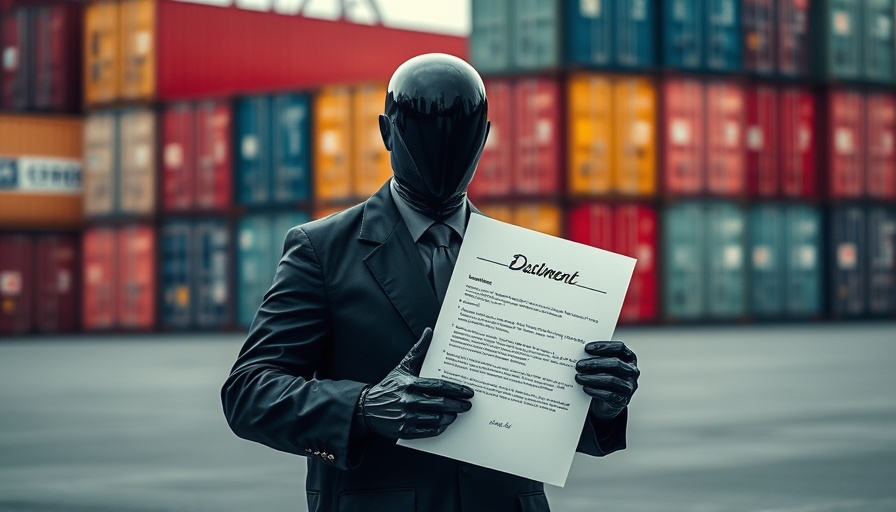
Understanding the Unfolding Impact of U.S.-China Trade Relations
The ramifications of Donald Trump’s trade war have traversed borders, particularly impacting European and UK companies. The recent collection of industry data illustrates a growing concern as businesses grapple with increased tariffs and shifting market dynamics.
The Economic Ripple Effect on Global Markets
Trade wars do not solely affect the countries directly engaged in the disputes; rather, they create ripple effects that influence global markets. European firms, particularly those dependent on exports to the U.S., are witnessing falls in demand as costs increase due to tariffs. In turn, this strains local economies, leading to uncertain job markets and challenging conditions for small businesses.
The Plight of SMEs Amidst Trade Tensions
Small and medium-sized enterprises (SMEs) often lack the financial buffer that larger corporations possess. With soaring costs attributed to tariffs, many SMEs are at risk of undercutting their profitability or, in extreme cases, facing closure. This situation emphasizes the vulnerability of smaller players in an economic landscape affected by geopolitics.
Historical Context and Its Relevance
Historically, trade wars have yielded long-term consequences. Drawing from the past, the U.S.-China trade conflict echoes the tariffs and restrictions during the Great Depression, which hampered global trade and exacerbated economic downturn. Today, European and UK companies mirror these challenges, prompting leaders to find alternative trade strategies amidst uncertainty.
Adapting to Change: Business Growth Strategies in a Fragile Economy
In light of continuing trade friction, businesses are seeking innovative growth strategies. Companies are diversifying supply chains, exploring new markets, and investing in automation to remain competitive. This evolving landscape presents opportunities for businesses willing to adapt and innovate.
The Future of Trade Relations and Its Implications
As President Trump’s administration continues to threaten trade wars, there are speculations about upcoming policy shifts. Trade experts predict that European and UK companies will likely have to engage in extensive risk assessments to navigate future negotiations and bilateral agreements. The demand for flexibility and strategic foresight in business operations is more crucial than ever.
Conclusion: The Call for Corporate Responsibility in Uncertain Times
The lessons from this trade war extend beyond immediate economic impacts; they touch deeply on corporate responsibility and sustainable business practices. As industry leaders assess the evolving landscape, a commitment to ethical practices and strategic partnerships may pave the way for resilience and opportunities, even amidst tumultuous conditions.
 Add Row
Add Row  Add
Add 



Write A Comment